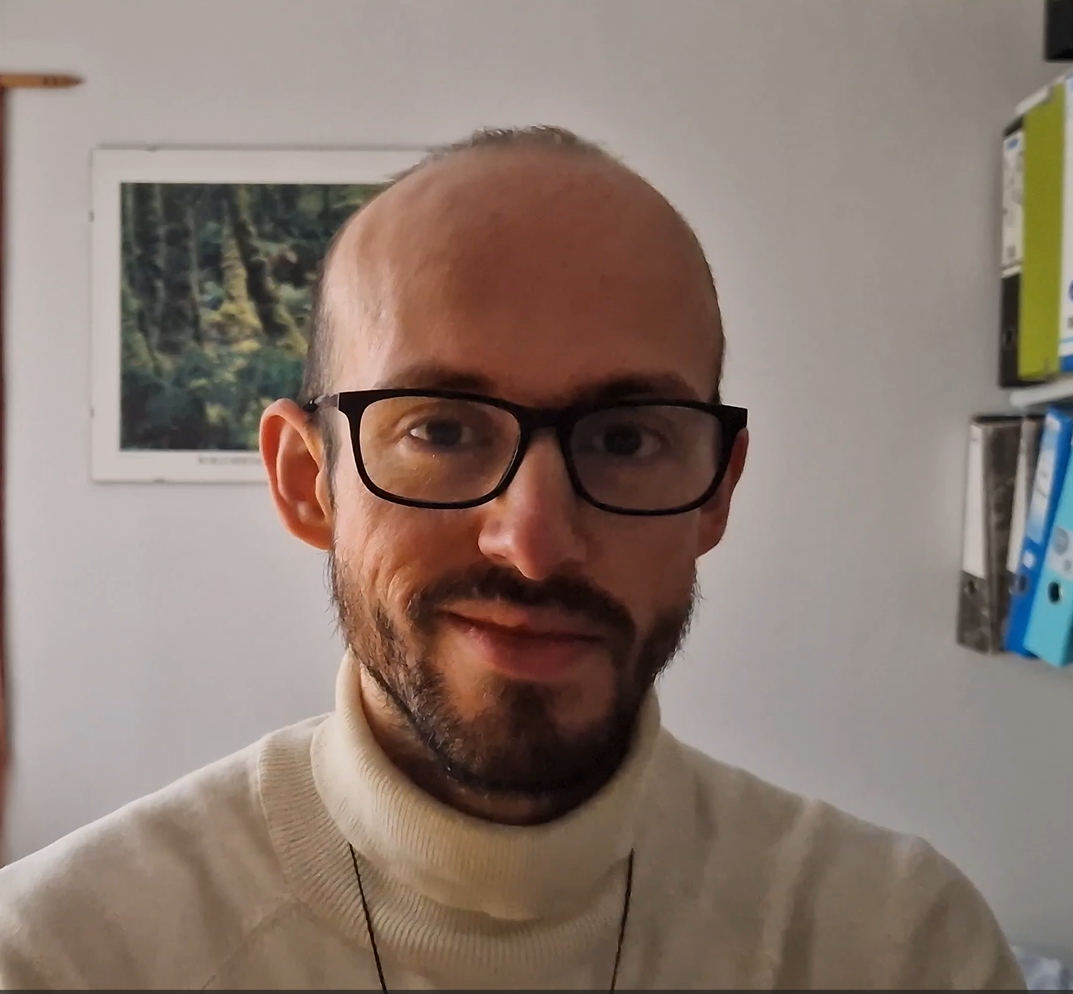Over 10 months. That is what it took to find a job. Or was it 10 years? I landed a full-time journalist role, a goal that has taken a decade to reach.
Here’s another piece of job journey story time. I want people to know how much this means. I had almost given up, assumed I missed my chance when I didn’t get into journalism at the start of my career.
I’m not going to mention who I’m joining just yet. It’s a few months until I start, so that can wait for November. Instead, here’s a tale of how a writer tried, failed, tried again, failed, almost gave up…then found a way.
My journey to journalism began in China.
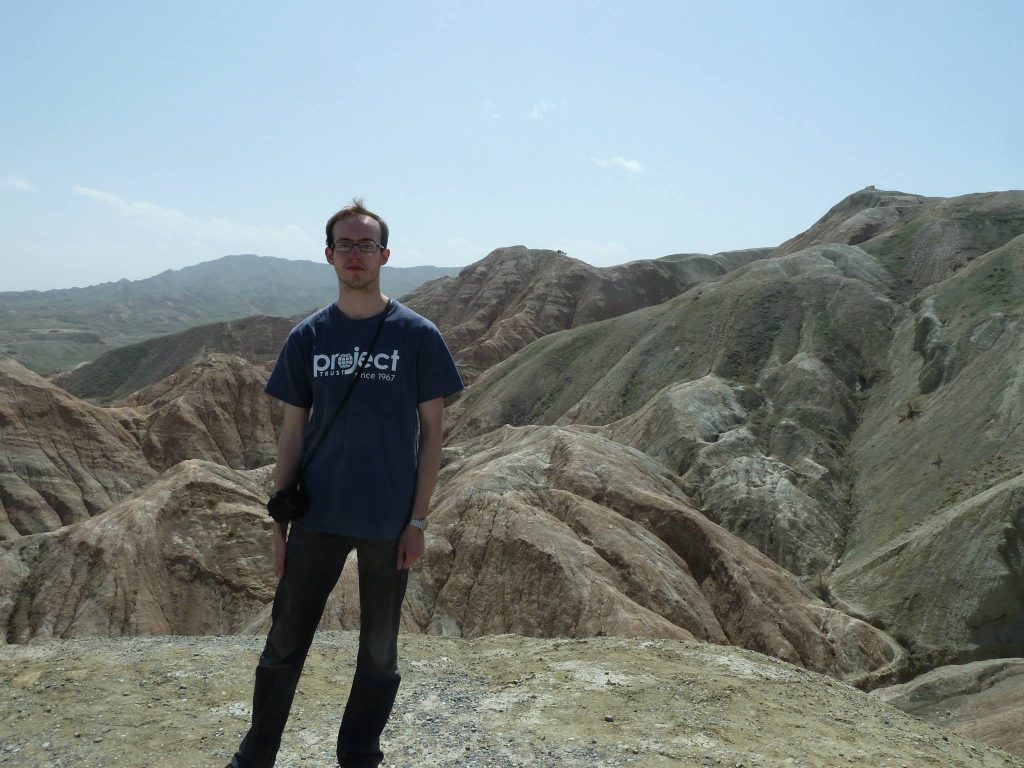
On ‘Fire Mountain’ (火山),near my first home in China
I moved to China for the first time when I was 19. Before university, I found myself in a small Chinese desert city, the foreboding Tianshan mountains to my south, the expanses of the Taklamakan desert to the north. The town was known for oil. A small hill south of it was named ‘fire mountain’ because of the bubbly goop visible there. While hardly the marketed ‘fire’, the sign at the top marking China’s first discovery of oil arguably could be labelled as such. The skies were suitably oil coloured on many a day, the refineries churning out contributions to the smog. I came to help in a local school with English classes for a year, while I taught myself Mandarin and learned as much as I could about China.
I left with the language and the newfound knowledge of China I came for. I also left with experiences that will never leave me, some for better, others very much for worse. Where I stayed was the most wonderful, beautiful place (on the clear days), but it was also a place of turmoil and unrest. The darker experiences are best left untouched here, but they taught me more about the world than university ever did.
In Europe, most people did not know this place, and neither did they care about it. I remember pointing out my new home on a map to a friend before leaving the UK – the comment: there’s nothing there – why on earth would you go there?
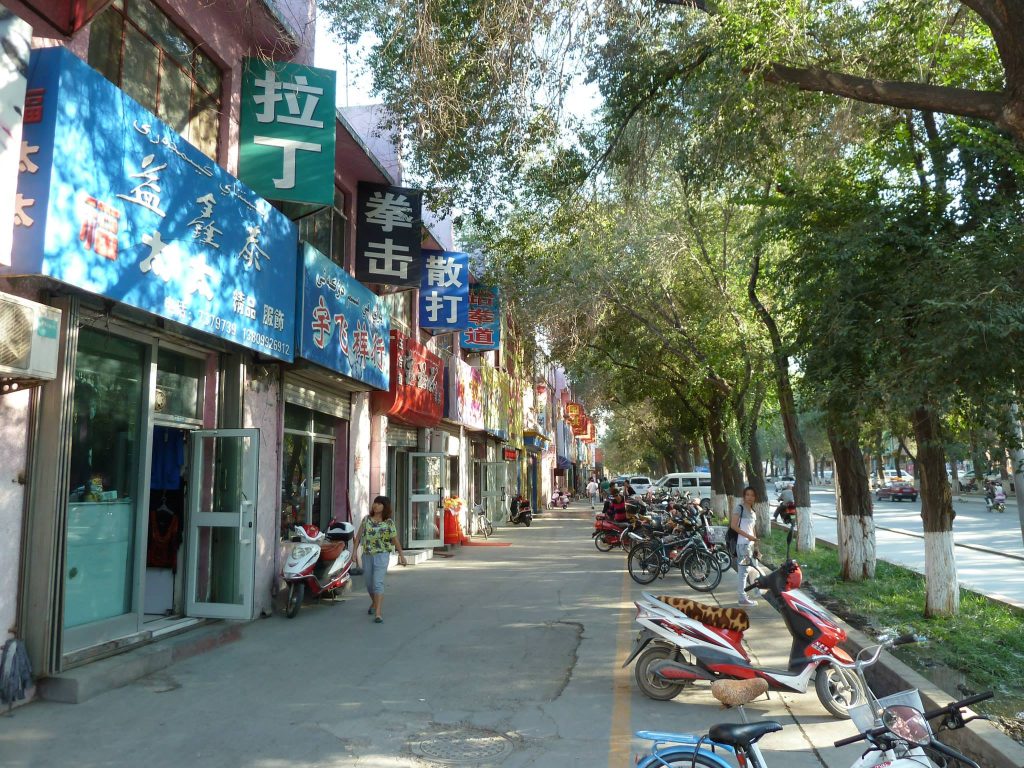
My old town, a small town of a mere 300,000 people.
Yet there was so much there. That realisation that there is so much out in the world left unshared – so many stories, events, people, joys, disasters – it made me see more deeply than ever the value of the writer, the reporter, the biographer, the storyteller.
And so, it became my hope that I would join those ranks one day.
When I returned to the UK for university, I started writing for my university’s paper. In final year I co-ran a magazine with some amazing fellow student writers. On graduating, the plan became to start writing from Japan, where I would be working straight out of university, and find my way into an international media organisation as I built up my portfolio.
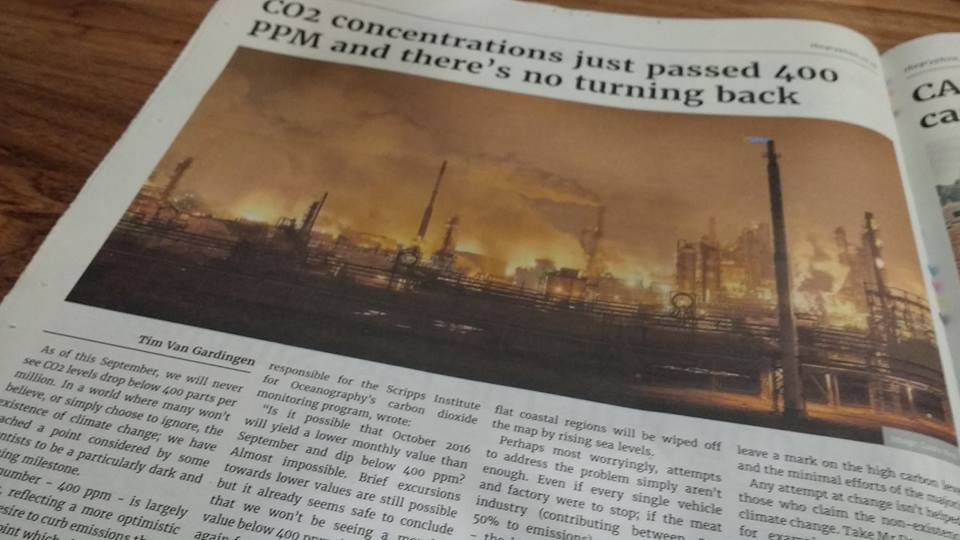
Writing in the Gryphon, University of Leeds’ student paper
The first chances came early. Hong Kong’s SCMP and Germany’s Deutsche Welle pushed me to the final stages of their training program applications. I missed both. For DW I risked my job in Japan for the opportunity. The choice was either turn DW down, or fly to Bonn for interview and get kicked out of work in Japan.
I flew to Bonn – I had to try, even with a reasonable chance of failure. I kept telling my students in Japan that they should follow their dreams. What would it mean if I told them one thing and acted in the opposite way?
So despite the high chances of it not working out, I told my students I was going to become a journalist in Germany. They left me with handwritten notes wishing me luck, which I keep with me to this day – reminders of what I set out to do.
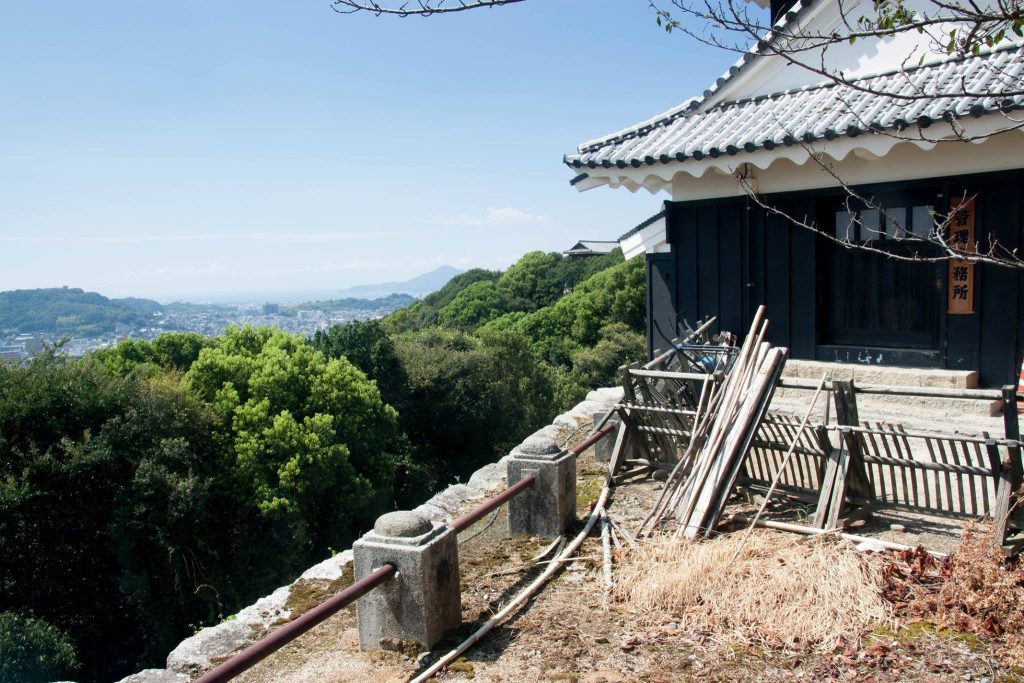
From a desert home to a subtropical island
Missing DW at the last hurdle and having no job to return to in Japan, it was back to the search for journalism jobs in the UK. Despite a few initial phone call interviews, there didn’t seem to be a way in.
So compromise beckoned in the form of editorial work with an international organisation. With my background in working in schools and genuine care for education, I joined British Council in a supporting role in their global insights team. The plan was to prove myself in some kind of editorial setting and gain some professional clout as a writer. I would also have a specialism – global higher education.
BC certainly gave me that clout. Alas, a global pandemic hit, and career planning got complicated. Seeing as the office was in Beijing, it got very complicated.
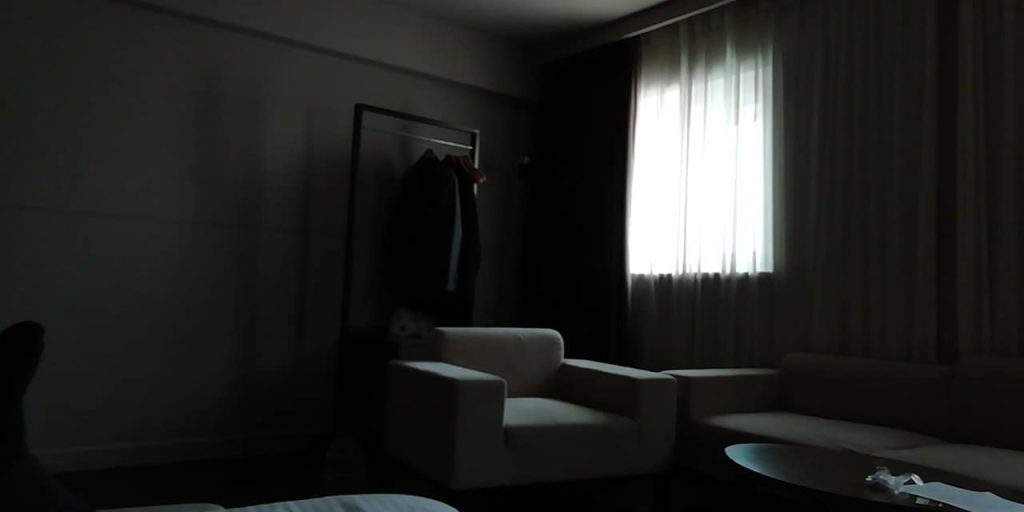
Inside my quarantine hotel. Yes, it was that dark.
There was also a major miscalculation on my part. British Council is a major soft power organisation. I had to be much more careful with what I wrote online than before, a fact that stifled my writing. I probably could have published more than I did, but the double edge of working for BC and working from Beijing kept my pen from writing publicly.
Time ticked on and my experience looked increasingly ‘international organisation’-like and less ‘journalism’-esque. After my contract at BC came to an end, journalism didn’t feel like an option anymore. I focussed instead on higher education roles, the civil service, and other international organisations. I did – and still do – care about these kinds of work. Yet they also came at the cost of feeling like I was betraying myself.
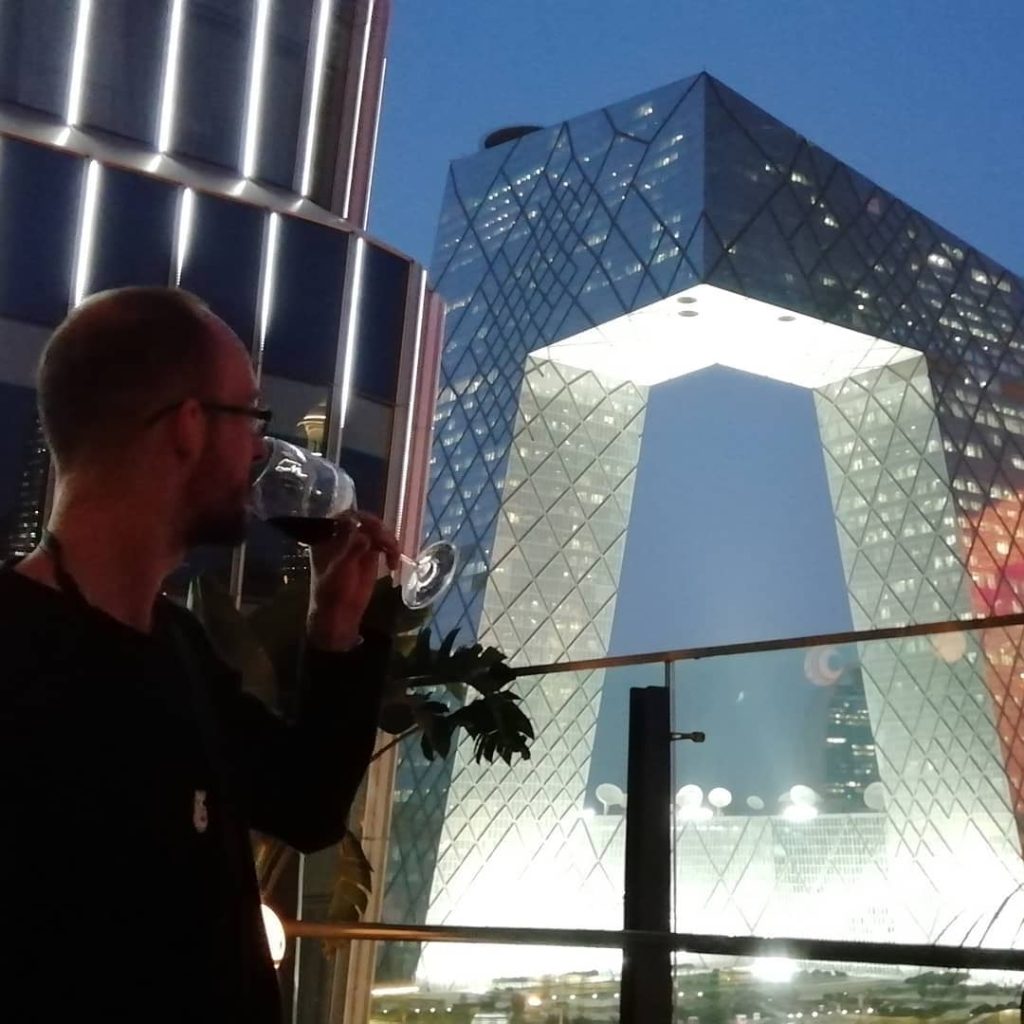
There were definite perks to working in Beijing, but it wasn’t the plan.
20-year-old me set a goal, and the goal meant a lot to me. Still being invested in journalism after 10 years was a sign that deserved respect.
Still, working at BC opened up chances to occasionally write for press, slowly building up a small presence in very specific business media outlets. There was an inkling of hope in each piece I did get published.
It just no longer felt like media organisations believed me when I claimed that journalism is what I set out to do. Some were happy to accept my pitches, but applications for reporter roles? Nope – I must be joking.
Well, after 10 years of building myself up as a writer, one organisation has decided to take a chance on me. It is good, serious journalism covering a sector that interests me deeply – if very far from the kind of story that led me to journalism in the first place. It is international journalism, so my international experiences will not go to waste. There is an analytical side to this particular brand of journalism, so my time with an analytical team will find its value.
Most importantly though, they are giving me a chance.
One chance was all I needed.
From November, I’ll call myself a journalist.
